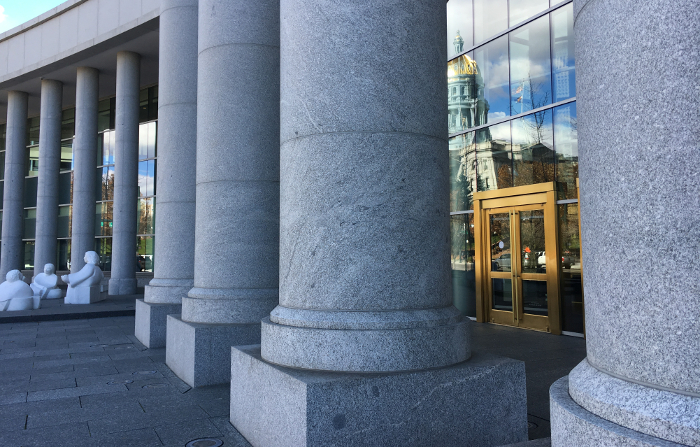By Jeffrey A. Roberts
CFOIC Executive Director
The Colorado Supreme Court’s adoption Thursday of a statewide standard for sealing or suppressing court records in criminal cases “is an extremely positive development that increases transparency and builds public trust in our judicial branch,” said Steve Zansberg, a First Amendment attorney and president of the Colorado Freedom of Information Coalition.
When Rule 55.1 goes into effect May 10, 2021, criminal courts in Colorado will be required to publicly docket motions to limit access to court files and any hearings convened to consider such motions. Even more significant: A judge’s written order justifying the suppression of records will be made public.

“This does away with the past practice of judges denying public access with a single unintelligible sentence, such as ‘countervailing considerations,’ or, in some cases, no written explanation at all,” Zansberg said. “The public is entitled to have a judge explain, clearly and in detail, why its constitutional right to monitor the workings of the courts is being denied.”
Four years ago, Zansberg urged the state judicial branch’s Rules of Criminal Procedure Committee to consider a uniform standard for sealing or suppressing criminal court records, noting that the lack of such a rule forced each trial court judge to determine the legal principle to apply whenever there are disputes over public access.
A year later, the committee rejected the proposal as unnecessary. But it reconsidered the idea after a 2018 Denver Post series showed that more than 6,000 court cases had been hidden from public view because of judges’ orders to suppress them, often with no ruling to explain their reasoning. Also that year, The Colorado Independent argued that a district court judge did not sufficiently explain why he sealed records alleging misconduct in the prosecution of a killer who ended up on death row. In that case, the Colorado Supreme Court declined to recognize a constitutionally based presumption of public access to judicial records, even though federal appellate courts and other states’ courts have held that such a right exists under the First Amendment or individual state constitutions.
Zansberg submitted written comments on a proposed Rule 55.1 to the Supreme Court in May on behalf of CFOIC, the Colorado Press Association and the Colorado Broadcasters Association, and he testified before the justices in October.
“Although the process to get this rule in place took far longer than we had hoped, the adoption of a statewide standard — that guides trial courts’ decisions whether to deny public access to judicial records — is truly a cause for celebration,” Zansberg said. Written orders also allow for meaningful appellate review, he added.
During a Joint Budget Committee hearing Thursday, Chief Justice Nathan Coats said Rule 55.1 is intended to solve the problem of criminal court case records “just disappearing into a black hole.” The final version, he told state lawmakers, “was substantially written within the Court as a result of the public comments, particularly by Mr. Zansberg on behalf the press.”
The new rule does not include two suggestions made by Zansberg: 1) It does not specifically allow for members of the public to challenge efforts to suppress records and 2) It does not require the showing of a “compelling” state interest to justify suppression.
Instead, judges will have to show that a lesser “substantial” interest is served by making a court record inaccessible. In his written comments, Zansberg had argued that the lower standard “undervalues the relative weight of the presumption of public access.”
Follow the Colorado Freedom of Information Coalition on Twitter @CoFOIC. Like CFOIC’s Facebook page. Do you appreciate the information and resources provided by CFOIC? Please consider making a tax-deductible donation.




